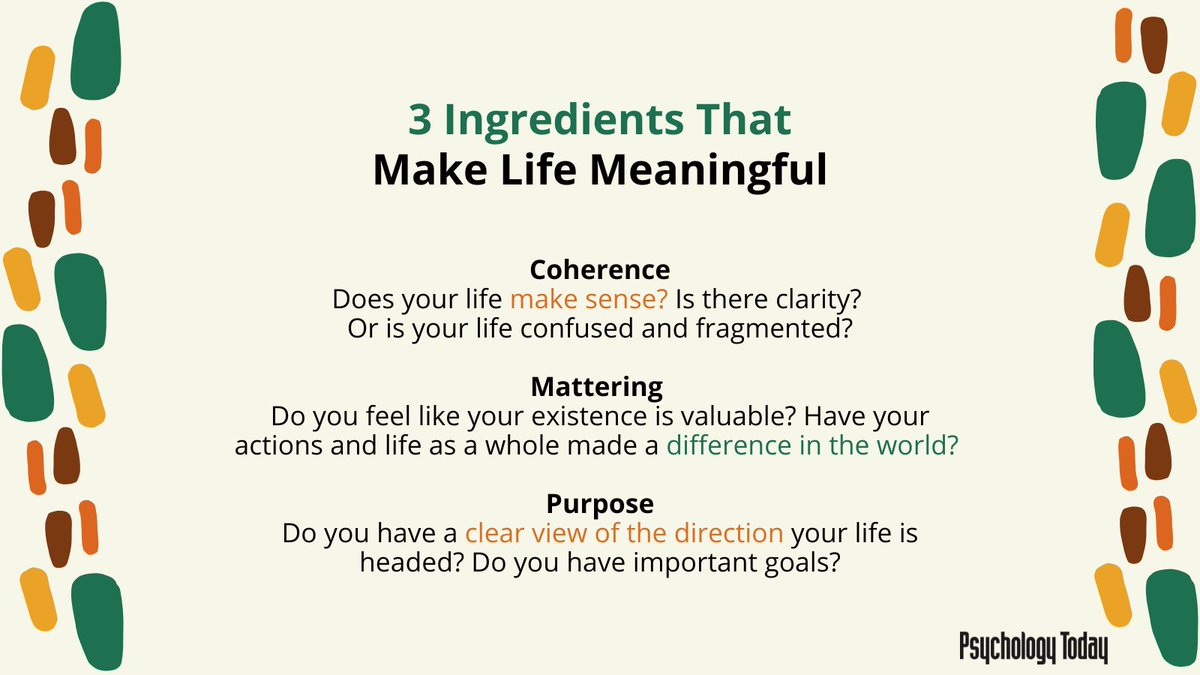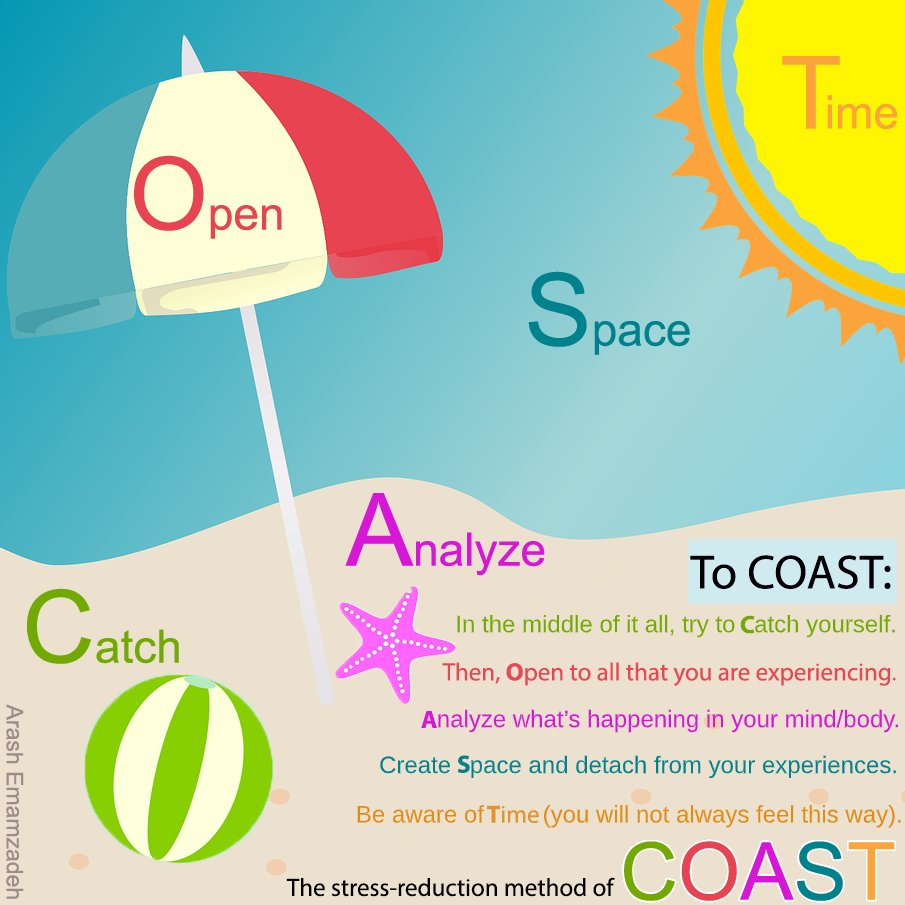
Arash Emamzadeh
@arashemamzadeh
#Psychology/#Health blogger (e.g., @PsychToday). Background in #Biology & #Psychology. Interest in #Philosophy. Enjoy #humor. Amateur #Poet & #Photographer. 🇨🇦
ID: 956682743554830336
http://fearlesspsychology.wordpress.com 26-01-2018 00:18:35
69 Tweet
1,1K Followers
940 Following

#Fear vs. #anxiety Fear: Specific/observable danger now (e.g., a wild animal). More strongly associated with action (e.g., running) and arousal (fight/flight). Anxiety: worrying about "something" going wrong later. Depends more on perceptions/thoughts. fearlesspsychology.wordpress.com/2022/03/19/wha…

Struggling with self-control? Try these simple strategies to improve your ability and desire to wait, writes Arash Emamzadeh bit.ly/3KOoQOo

Self-connection means: 1.Being self-aware. 2. Being self-accepting. 3. Living in harmony with yourself. So, how self-connected are you? Take this quick test Psychology Today. #MentalHealthAwarenessWeek #health #happiness #mindfulness #life psychologytoday.com/us/blog/findin…

People with depression are more likely to expect to be rejected in social situations—and vice versa. Here's what they can do to break the vicious cycle, writes Arash Emamzadeh bit.ly/3yVWBKU

We assume that best performers (e.g., top CEOs, athletes, musicians) give the best advice. But new #research shows top performers give more (not better) advice, and we mistake quantity for quality, as I explain Psychology Today. #work #business psychologytoday.com/us/blog/findin…

Did you know regulating another person's negative emotions can reduce your own—especially if you are high in empathy? I explain how, in my blog Psychology Today. #happiness #MentalHealthMatters #Mentalhealth #love #relationships #wellness #Wellbeing psychologytoday.com/us/blog/findin…

#Loneliness has 2 dimensions: -Social loneliness: Lacking a sense of belonging. -Emotional loneliness: Inadequacy of one’s intimate/romantic relationships. There are different risk factors associated with each, as I explain Psychology Today. #happiness #health psychologytoday.com/us/blog/findin…

The assumption that a suicide attempt occurs only after worsening suicidal thoughts may be wrong, according to new research. Arash Emamzadeh explains. bit.ly/3zligMb

How do you feel about your life? Good or not so good? Incorporating these values can help, explains Arash Emamzadeh bit.ly/3zzFzBY


Trolls tend to have subclinical sadism, new #research suggests. To learn more about the link between sadism and online and offline aggression, see my article Psychology Today. #troll #SocialMedia #Twitter #harassment #bullying #relationships #security psychologytoday.com/us/blog/findin…

3 components underlying narcissism that may make someone more likely to believe in conspiracy theories, by Arash Emamzadeh bit.ly/3A4ZpEt

Adults who can recall many instances of feeling unwanted or unloved during childhood have higher odds of lifetime depression, according to new research. Arash Emamzadeh explains why. bit.ly/3f4yi5t

Narcissists tend to mistreat the people in their lives in these specific ways—harming their mental health in the process, explains Arash Emamzadeh bit.ly/3OQ5go5

Want to strengthen your relationship? Here are some of the most effective techniques to try, writes Arash Emamzadeh psychologytoday.com/us/blog/findin…

Some people engage in worry or rumination as misguided coping strategies. But there are healthier ways to deal with uncertainty—like these, writes Arash Emamzadeh psychologytoday.com/us/blog/findin…

When people feel ashamed, they often have a strong urge to hide or run away. Here's a better way to cope, by Arash Emamzadeh psychologytoday.com/us/blog/findin…

Dark Triad personality traits can predict how someone will break up with a partner. Here's what the research shows, writes Arash Emamzadeh psychologytoday.com/us/blog/findin…

Feeling stressed or frustrated? Here are some coping strategies you might not have thought of, by Arash Emamzadeh psychologytoday.com/us/blog/findin…

Parentified children grow up feeling disconnected from and often ashamed of their needs and true selves. Here's how that affects them as adults—especially in their romantic relationships, by Arash Emamzadeh psychologytoday.com/us/blog/findin…

